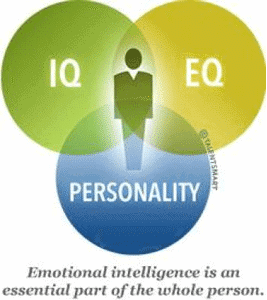Just How Important Is Emotional Intelligence?
August 12, 2022 7:30 AM EST | 3 min read
The concept of emotional intelligence has been around since the 1980s.
Emotional intelligence is a definable, measurable character trait.
However, it has long been recognized that the ability to identify primary emotions, both in oneself and in others, gives a real advantage in both social interaction and work situations.
Conversely, misinterpreting such emotions can lead to difficulties with relationships or inappropriate reactions in a work environment.
Modern thinking is that emotional intelligence is at least as important as the more familiar concept of intelligence quotient (IQ).
In fact, some psychologists believe that it is more valuable in everyday life than having a high IQ.
Being able to monitor emotions and respond accordingly is certainly a very useful characteristic, promoting empathy in a variety of situations.
Emotional Intelligence in Games
There are a number of games that call on having the ability to recognize emotions as part of the playing tactics, using emotional intelligence in a rather less serious way.
One such game is Funny Feeling, a party game from You and Me Games Ltd.
Players take turns recognizing the random emotion or feeling being expressed by one of the other participants as they say or sing a phrase, or mime an action.
It is best played as a team party game with teenagers and adults, where people can relax and have fun.
We probably all apply a degree of emotional intelligence when we start playing games with young children.
Even simple games, such as “Snap” or “Ludo” (did you know that the word “ludo” comes from the translation of the Latin word, meaning “I play”?) provide a learning experience for young children.
You will also enjoy our article on your intelligence.
These games also teach that the concept of competition is not always an easy process.
Children are often naturally quite competitive!
Sometimes they find it difficult to learn to lose when playing a game.
Being able to read and respond to their emotions so that they enjoy playing, without becoming too disheartened, can be an important part of the learning process.
All parents can recognize the need to monitor emotions in their children.
Then they can help their little ones learn and use their own format of emotional intelligence in the everyday domestic situation.

Other applications of Emotional Intelligence
An obvious application of emotional intelligence is in the field of therapy.
Reading a person’s emotions and feelings is an essential part of understanding that person.
This skill enables therapists to help patients come to terms with previous traumas.
Some employers place so much emphasis on having a high degree of emotional intelligence that they incorporate a series of psychological tests into their recruitment process.
We have long been familiar with having IQ tests in that context.
Perhaps it is a natural progression to measure a person’s ability to manage their own (and others’) emotions.
Certainly, it is an invaluable skill when it comes to managing staff, where the ability to recognize what motivates different people can make the difference between a happy team and one which suffers constant discord.
Happy employees will always be more productive, so there is a sound commercial basis for including an assessment of emotional intelligence in the recruitment process.











